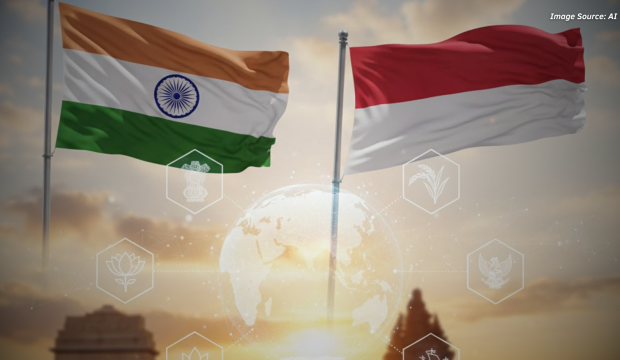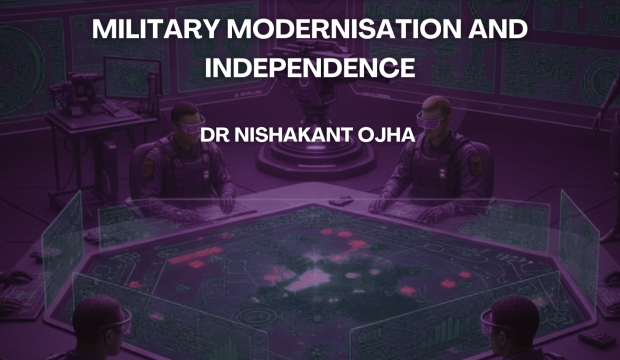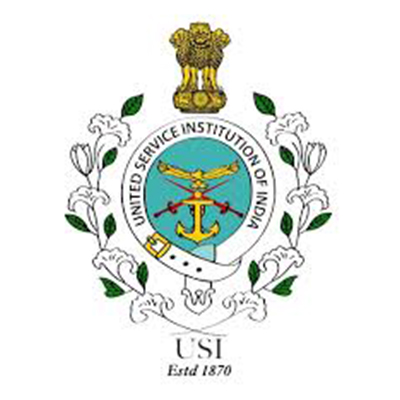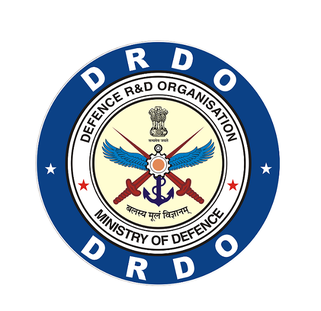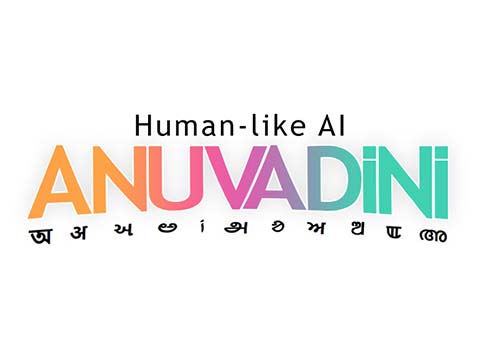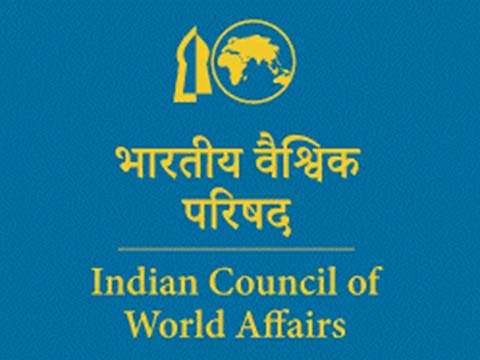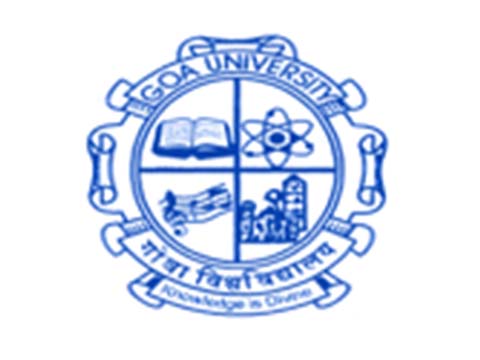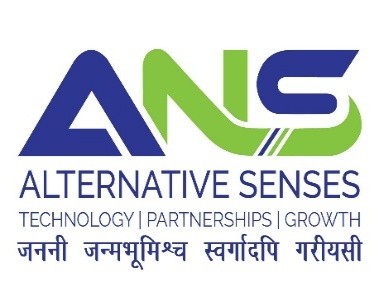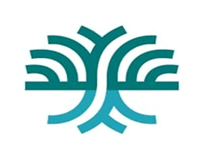Introduction
The G-20 is a forum for economic cooperation that was established back in 1999 and has its roots in a series of financial crises as its inception was in the wake of the Asian financial crisis and then its transformation from being a forum for finance ministers to one for Head of State/Government also happened post the 2007 financial crisis (Government of India, 2021). The Group of Twenty (G20) comprised 19 countries (Argentina, Australia, Brazil, Canada, China, France, Germany, India, Indonesia, Italy, Japan, Republic of Korea, Mexico, Russia, Saudi Arabia, South Africa, Türkiye, United Kingdom and the United States) and the European Union until now but it now also includes African Union. The G20 members represent around 85% of the global GDP, over 75% of the global trade, and about two-thirds of the world population (Government of India, 2021). Over time its role has expanded from being merely concerned with economics to inclusion of climate, sustainable development, health etc. as we will witness upon discussion of the G-20 Summit of 2023 under India’s presidency.
The Indian Presidency happened during a strategic time as the country is all set to conduct its general elections next year making the summit a landmark event for Prime Minister Modi. It is also the same year that India has shown itself to be an important economic power, having overtaken the UK’s economy in terms of GDP (Raghuvanshi, 2023), being the 4th country to land on the moon (Kekatos, 2023) and also overtaking China to become the most populous nation (Kulkarni, 2023). On the flip side, this development also invited a lot of cynicism calling the presidency to not just be a rotational coincidence but a deliberate attempt by the ruling party to a reflection stunt along with other conjectures like that of demolition drives and reports of the fake projection of country’s economic growth (The Wire, 2023). However, according to the Prime Minister of India, “The success of India’s G20 presidency belongs to the country’s 1.4 billion people, and not to an individual or a political party” (Prasad, 2023). The government seemed to be committed to this idea as the summit was owned by the people and even included events in States which are non-BJP making it internally “inclusive”. This presidency is also unique in the backdrop of the Russia-Ukraine war, since the members were divided on the issue along with a growing gap between the Global North and South (McGowan & Robinson, 2023).
Outcomes of India’s G20 Presidency
New Delhi Leaders Declaration
Perhaps the greatest outcome of India’s G-20 presidency is the New Delhi Leaders Declaration which is an 83 long paragraph document that was unanimously adopted by all the leaders after the G-20 Summit organised in New Delhi in September (G20 Government of India, 2023). Given the backdrop of relations between the member nations of G-20 where they are divided on the concerns over the Russia-Ukraine war, it was highly doubted that any significant issue could be resolved let alone the passing of a unanimous document. Hence, the adoption of a unanimous declaration could be laid down as the Indian government’s major diplomatic achievement. The major takeaways from the declaration are discussed below. Finance
The document talks about restructuring WTO by 2024, which is a major win for India and the developing countries that have been raising issues with its functioning and dispute settlement mechanisms being discriminatory along with promoting its “Aid for Trade” programme primarily for the LDCs. It also talks about the importance of start-ups and MSMEs as per the successful discussions in India’s newly launched Entrepreneurship 20 group which also is a reflection of India’s domestic policies that have been heavily investing in startups recently (Sharma, 2023). To combat corruption, the member countries have established three high-level principles relating to enhancing global collaboration, asset recovery measures, and fostering public sector integrity. While this was more of a reaffirmation of the commitment to intolerance of corruption and the measures under the United Nations Convention against Corruption (UNCAC), the development of the three principles was a novel establishment under the Anti-Corruption Working Group (Kumar, 2023). The larger themes addressed by these three principles have been the focus of the resolutions passed by this working group under its establishment since 2010 under various presidencies, thus it can be argued that it is unlikely to have any meaningful impact under India’s presidency either much like that of the others over the years. However, while its impact and follow-up by other countries might be debated, it does seem to have a positive reaction domestically as recently the Delhi government has instructed its ministries to create thorough implementation plans for each of the 63 G20 declaration action items along with a focus on the anti-corruption plans as well (Economic Times, 2023).
Sustainable Development Goals
As mentioned above, the G-20 is not merely an economic forum now hence it also focuses on Sustainable development Goals the declaration states the G20 2023 Action Plan to Accelerate Progress on the SDGs will be put into action by utilising structures of digitisation of data, tourism, culture, providing adequate support to developing countries for its implementation and supporting UN initiatives on the same (MEA Briefing, 2023). It also shows a commitment towards climate financing, eradicating hunger and malnutrition by developing climate resilient and smart agriculture which is particularly important for countries of South Asia such as India, Pakistan, Bangladesh and Afghanistan among others facing massive food security issues (Economic Times, 2023). The declaration also showed a dedication to inclusive, equitable, top-notch education and skill development.
Green Climate
The declaration recognised the need for environmental sustainability along with immediate action plans in the face of an environmental crisis by recommitting itself to the Paris Agreement and 43% reduction of greenhouse gas emissions by 2030 along with the achievement of their nationally determined contributions in line with those set by the agreement. As India advocated various climate policy measures at the G20 this year, including the International Biofuels Alliance, “Mission Life” (which promotes the idea of a circular economy), and green hydrogen standards, it might be said that this year’s G20 was a “green summit.” (Sharma, 2023) Given that the statement discussed the G20 High-Level Principles on Lifestyles for Sustainable Development, it may be claimed that the same has been accomplished in large part. India urged international development banks to undergo reforms to make green finance easier (MEA Briefing, 2023). In the declaration, green financing was also addressed on several occasions, along with a commitment to provide $100 billion per year for climate finance, particularly via the efforts of the UK and EU.
However, regarding climate action plans, India also lagged in its presidency as coal was largely kept out of the discussions as well as the declaration and it also did not adopt the no-use approach to fossil fuels as recommended by the UN. Indian presidency nevertheless did have significant climate-led resolutions and this is because of its credentials as the world’s third-largest renewable energy producer the declaration also adopted biofuels as well as reduction from hydrogen emissions (Sharma, 2023).
Multilateralism
The declaration acknowledged the need for adaptations in the UN to carry out the mandate obligations as the world order has evolved significantly since WW2. It reinstates the need for its reform in the spirit of international cooperation and multilateralism. It also talks about reforming Multilateral Development Banks and providing help to Emerging Market Economies (EMEs) to help with the shocks faced by Developing countries (G20 Government of India, 2023). As pushed by India, the declaration emphasised technology and digitalisation to be important factors to achieve equitable growth and talk about building to provide services on a societal scale, the public and commercial sectors together develop shared digital infrastructure or DPI. They accepted India’s proposal for the Global Digital Public Infrastructure Repository establishing and recognising India as a pioneer in the field having successfully implemented programmes like UPI and Co-Win (Makhija, 2023). Given the troubles faced by India’s immediate neighbour Sri Lanka and other African nations like Ghana and Ethiopia, the declaration also talked about measures for debt vulnerabilities of developing or underdeveloped nations. This was a major achievement for India considering the document was unanimous even after China was a part of the forum given that Beijing is famous for its “Debt Trap Policy”, especially with regards to encircling India in its String of Pearl.
Women
The declaration talked about bridging the gender gap in areas of STEM, digital literacy and the brunt of environmental challenges on women. India’s presidency is largely critiqued for having lagged in actually having some meaningful outcomes in the course of women’s empowerment (Atlantic Council, 2023), apart from the resolution to establish an engagement group on the Empowerment of Women under Brazil’s presidency next year. Nevertheless, it is still a loss opportunity for the Indian nation which in itself faces a lot of gender disparity and high rates of crime and violence against women much like other Asian and African nations of the Global South.
Biofuels Initiative
The G20 Summit Delhi Declaration of 2023 includes a proposal to phase out unabated coal generation and treble global renewable energy capacity by 2030. This effort intends to combat climate change and lower greenhouse gas emissions, particularly with respect to biofuels. Biofuels can be used as an alternative to fossil fuels since they are made from renewable organic resources like crops or agricultural waste. They might lessen our reliance on fossil fuels and cut down on carbon dioxide emissions. The G20 Summit Delhi Declaration’s acceptance of the biofuel initiative shows a dedication to making the transition to a cleaner and more sustainable energy future.
Under India’s G20 chairmanship, the Global Biofuel Alliance was also created. India, Brazil, and the US are working together to boost the use of sustainable biofuels and speed up efforts to achieve net-zero emissions objectives. The alliance intends to expand the biofuel industry, ease international commerce, and promote technical biofuels initiatives across the world. It will work with current regional and global organisations and projects. In order to further demonstrate its commitment to cleaner fuels, India, the third-largest oil importer in the world, plans to construct 12 bio-refineries (ANI News, 2023).
The G20 countries have significantly increased their capacity for renewable energy sources, especially biofuels, which will help them meet their climate targets and lessen the effects of climate change. However, the kind of feedstock utilised and the production techniques used will determine how well biofuels reduce greenhouse gas emissions. The G20 countries should emphasise the use of environmentally friendly feedstocks and support breakthrough biofuel technology.
2 Pillar Taxation System
A proposed solution to the tax issues brought on by the digital economy and multinational corporations’ (MNEs’) tax evasion is the two-pillar taxation structure. It consists of two pillars that each address a distinct weakness in the current laws. To guarantee that MNEs pay taxes in the jurisdictions where they have sizable customer bases and produce profits, even if they do not have a physical presence there, Pillar One focuses on the distribution of taxing rights. In contrast, Pillar Two seeks to establish a worldwide minimum tax rate to stop MNEs from moving earnings to low-tax regions. It gives governments a model to put policies like the Income Inclusion Rule and the Undertaxed Payment Rule into place (Jayaswal, 2023).
By ensuring that MNEs pay their fair share of taxes and preventing tax evasion, the two-pillar taxation system aims to establish a more equitable and inclusive international tax structure. It is a significant step towards tackling the issues raised by the digital economy and making sure that tax revenues are distributed more fairly. However, it is important to note that this system has not been developed in collaboration with the Organisation for Economic Cooperation and Development (OECD) as part of its Inclusive Framework on Base Erosion and Profit Shifting (BEPS) which include around 140 countries, the system has not been adopted by any country so far and was subject to discussion since 2021 (OECD, 2023). But successfully under India’s presidency, an outcome statement accepting the same by 138 countries has been generated.
India-Middle East-Europe Economic Corridor (IMEC)
On the fringes of the summit, many side incidents happened. During the G20 summit in Bali last year, the EU, the US, and Indonesia launched the Partnership for Global Infrastructure and Investment (PGII), which was co-hosted by US President Joe Biden and Indian Prime Minister Narendra Modi. PGII aims to scale up investments for high-quality infrastructure projects and the creation of economic corridors (European Union Briefing, 2023). The US, India, Saudi Arabia, the United Arab Emirates, France, Germany, Italy, and the European Union signed a memorandum of understanding on the India-Middle East-Europe Economic Corridor (IMEC), which is considered a potential rival to China’s Belt and Road Initiative. It is aimed to provide an increase to trade and economy by connecting India, UAE and Saudi Arabia. The leaders did not give an official statement stating it was established to counter the Chinese BRI but it can be seen as an alternative to the same as India attempts to build its “Spice Route” in response to Chinese efforts at re-establishing the ancient “Silk Route”.
Coference with India’s Foreign Policy
With its successful efforts to link this with its goals for a permanent seat on the UNSC, India has successfully established itself as a champion for poor countries. To do this, New Delhi is vigorously enlisting the continent of Africa’s 55 key votes. This is in line with Indian Foreign Policy which currently focuses on advocacy of expansion of UNSC permanent membership and primarily on India’s role in it as has been emphasised by the Indian external affairs minister S. Jaishankar on multiple occasions. India also invited Nigeria, Egypt, and Mauritius as part of the ‘Guest Countries’ at the G20 summit. In line with India’s overall humanitarian response to the Russia-Ukraine war because of its friendship with the former, this year’s G20 Summit unlike last year did not explicitly criticise Russia for its aggression and talked about respecting sovereignty and focused on the food security aspect of it (Jütten, 2023). The Indian foreign policy departure or advancement from the Non-Alignement policy of Nehru to the Multi-Alignment policy of Prime Milnister Modi is said to be the catalyst of achieving the seemingly impossible: a consensus between the opposing parties on the side of the Russia-Ukraine conflict and adoption of a unanimous declaration with every paragraph being approved by all the members, this is largely credited to its non-aggressive or humanitarian approach to the Russia-Ukraine conflict in general as has been reflected in its Foreign policy since the war broke out. If we were to compare India today with that during the Cold War era, in the contestation between the Western block whose aim seeks to increasingly be Anti-China and the Chinese-led Asian or Anti-Western block India again seems to be providing a middle path to the nations by being a part of both BRICS and QUAD or G7 and SCO and by its G20 position it has solidified its position as a key player in balancing the growing East-West as well as the North-South divide.
Leader of the Global South
The G-20 Presidency gave India a platform to emphasise and establish itself as the leader of the Global South. Since early independence India has been viewed as the leader of the developing and under-developing nations, whether it was because of Nehru’s active role in Asia-Africa Solidarity and NAM or India’s advocacy in platforms like UNFCCC for the burden of climate change on developing countries. The Indian presidency also focused heavily on issues of sustainable and equitable growth which is a common requirement for all the nations in the supposed Global South. India has discussed throughout the course, the restructuring of global institutions, and banks and the provision of aid to these nations for their shocks from poverty, hunger, and debt vulnerabilities to financing for climate and technology. It even got major Western powers like the UK and EU to agree on the same as well as incorporate several restructuring promises into the declaration. This was brought out by India’s participation in several interaction groups has been crucial in tackling a variety of concerns. The Business 20 (B20) engagement group has held discussions to increase private-sector involvement and foster sustainable economic growth. While the Young 20 (Y20) engagement group has prioritised young employment and empowerment, the Civil 20 (C20) engagement group has concentrated on social development and equality. However, it is also important to note that it managed to achieve all of this despite the challenges faced by the differences among the nations in the Global South on climate and health issues all while ensuring the West does not feel alienated and turn against them which would have resulted in a non-fulfillment of their needs. All these achievements do highlight how India has successfully established its role as the leader of the Global South but the highlight of its role as the same was the expansion of G-20 to include the African Union as a member, till now EU was the only supranational entity which was a member but the successful acceptance of the declaration which had a paragraph dedicate to inclusion of AU meant that it’s the first new member to be added since the formation of G-20 and this was among India’s primary aims for the summit as had been mentioned by Prime Minister Modi before the same (McGowan & Robinson, 2023).
Absence of Russia and China
The Delhi Summit of September also witnessed the absence of Chinese President Xi Jinping which was widely covered by the media because of his regular attendance at the G-20 meetings till now. This has led to a lot of speculations as to offer explanations for his absence, some argue it could be because of growing tensions between India and China and China’s release of its official map right before the conference which showcased Indian territories of Arunachal Pradesh as its own to be a point of contestation (Makhija, 2023). Others argue it’s because China believes the G-20 is largely dominated by the West and the US and is hence choosing to focus on BRICS more while some others say it’s because of the domestic upheaval that he skipped the summit (Atlantic Council, 2023). Either way, his absence did not take the attention away from the Indian Presidency, and was not construed as India’s failure. On the contrary, India got an opportunity to establish itself as an economic power at the Summit.
The Russian President Valdimar Putin also could not join the conference but this was largely because of the arrest warrant issued against him by the International Criminal Court restricting his travels as well as the hostile attitude the summit took towards Russia in the backdrop of the war last year. While one set of experts argues that the absence of these two leaders served in India’s interest and allowed for a consensus, there is another who claims that their absence could be the beginning of losing relevance of G-20 which would undermine the efforts India has put till now given the importance of both these powers in the global arena.
Conclusion and the Future Trajectory
This is not the end of India’s Presidency and it will be hosting the speakers of the parliaments of the member nations in October, again in Delhi before passing the presidency on to Brazil for the next term. Considering that the next two presidencies (Brazil and then South Africa) are also of BRICS nations (Jütten, 2023), the potential for furthering a goal of developing nations and seeking greater Western cooperation on the issue is immense and India must continue to be a pioneer of this process even after an end to its presidency. India’s G20 theme has a domestic lineage if we look at it from a historical perspective as the tagline “One Earth, One Family, and One Future” is deeply embedded in the age-old Indian belief of Vasudhaiva Kutumbakam. The Indian Sherpa and the Working Groups have been working to create a development strategy for the Global South, women-led development, or digital transformation. India has already shown its leadership in these fields by developing the Unified Payments Interface (UPI) System which the foreign delegates were given an experience of upon their stay for the Delhi Summit (Dakhore, 2023). For women-led development, India has recently shown its commitment to the agenda of Women’s Empowerment by passing the much-awaited Women Reservation Bill and making it a law just months before it passes on its presidency (A, 2023). There was scepticism before the Delhi Summit as to whether India’s approach of a middle path would lead the summit and its presidency to be general and not pathbreaking or if it would be able to achieve something substantial that would mark the term (Tan, 2023). The author believes its achievements like the inclusion of the African Union, and the establishment of IMEC among others can not be termed as general.
DISCLAIMER
The paper is author’s individual scholastic articulation and does not necessarily reflect the views of CENJOWS. The author certifies that the article is original in content, unpublished and it has not been submitted for publication/ web upload elsewhere and that the facts and figures quoted are duly referenced, as needed and are believed to be correct.
Bibliography
- Atlantic Council. (2023, September 10). Experts react: Did India’s G20 just crack the code for diplomatic consensus? Atlantic Council. Retrieved September 18, 2023, from https://www.atlanticcouncil.org/blogs/new-atlanticist/experts-react-did-indias-g20-just-crack-the-code-for-diplomatic-consensus/
- Aulakh, G., & Prasad, G. C. (2023, September 10). What has India achieved in its G20 presidency? Retrieved September 18, 2023, from https://www.livemint.com/news/india/what-has-india-achieved-in-its-g20-presidency-11694341654377.html
- Bhatnagar, N. (2023, July 14). India’s G20 Presidency: Implications For India’s Foreign Policy – IMPRI Impact And Policy Research Institute. IMPRI Impact and Policy Research Institute. Retrieved September 18, 2023, from https://www.impriindia.com/event-report/india-g20-presidency/
- Center for Energy Finance. (2023, May 10). G20 Finance and Sherpa Track | G20 Finance and Sherpa Track. CEEW. Retrieved September 18, 2023, from https://www.ceew.in/cef/quick-reads/explains/g20-finance-and-sherpa-track
- European Union Briefing. (2023, September 9). EU Commitment to Partnership for Global Infrastructure. European Commission. Retrieved September 18, 2023, from https://ec.europa.eu/commission/presscorner/detail/en/ip_23_4421
- G20 Government of India. (2023, September 9). G20 New Delhi Leaders’ Declaration. G20. Retrieved September 18, 2023, from https://www.g20.org/content/dam/gtwenty/gtwenty_new/document/G20-New-Delhi-Leaders-Declaration.pdf
- G20 Theme. (2023). Logo & Theme. G20. Retrieved September 18, 2023, from https://www.g20.org/en/g20-india-2023/logo-theme/
- Government of India. (2021, October 30). Background Brief. G20. Retrieved September 18, 2023, from https://www.g20.org/content/dam/gtwenty/gtwenty_new/about_g20/G20_Background_Brief.pdf
- Government of India. (2022, December 10). G-20 and India’s Presidency G-20 Development Working Group (DWG) meeting to be held in Mumbai from December 13 – 16, 2022 India will host over 200 meetings in over 50 cities across 32 different work streams G20 delegates and guests to get a … Retrieved September 18, 2023, from https://pib.gov.in/PressReleaseIframePage.aspx?PRID=1882356
- Jütten, M. (2023, September 9). Outcome of the 2023 G20 Summit in New Delhi, India. European Parliament. Retrieved September 18, 2023, from https://www.europarl.europa.eu/RegData/etudes/ATAG/2023/751474/EPRS_ATA(2023)751474_EN.pdf
- Kant, A. (2023, April 17). Celebrating 100 G20 meetings across India. Hindustan Times. Retrieved September 18, 2023, from https://www.hindustantimes.com/opinion/indias-g20-presidency-completes-100-meetings-showcasing-cooperative-federalism-and-commitment-to-intergovernmental-cooperation-collaborative-decision-making-and-human-centric-development-101681739175747.html
- Makhija, M. (2023, September 7). The G20 showcases India’s growing power. It could also expose the limits of its foreign policy. Chatham House. Retrieved September 18, 2023, from https://www.chathamhouse.org/2023/09/g20-showcases-indias-growing-power-it-could-also-expose-limits-its-foreign-policy
- Makhija, M. (2023, September 7). The G20 showcases India’s growing power. It could also expose the limits of its foreign policy. Chatham House. Retrieved September 18, 2023, from https://www.chathamhouse.org/2023/09/g20-showcases-indias-growing-power-it-could-also-expose-limits-its-foreign-policy
- McGowan, A., & Robinson, K. (2023). What Does the G20 Do? Council on Foreign Relations. Retrieved September 18, 2023, from https://www.cfr.org/backgrounder/what-does-g20-do
- McGowan, A., & Robinson, K. (2023, September). What Does the G20 Do? Council on Foreign Relations. Retrieved September 18, 2023, from https://www.cfr.org/backgrounder/what-does-g20-do
- MEA Briefing. (2023, September 10). Transcript of Press briefing by G20 Presidency (September 09, 2023). Ministry of External Affairs. Retrieved September 18, 2023, from https://mea.gov.in/media-briefings.htm?dtl/37093/Transcript+of+Press+briefing+by+G20+Presidency+September+09+2023
- National Portal of India. (2022, December 16). The Group of Twenty (G20). National Portal of India. Retrieved September 18, 2023, from https://www.india.gov.in/spotlight/group-twenty-g20
- Niranjan, P. (2023, August 25). Beyond Engagement: Reinventing the B20 Narrative under India’s… Invest India. Retrieved September 18, 2023, from https://www.investindia.gov.in/team-india-blogs/beyond-engagement-reinventing-b20-narrative-under-indias-g20-presidency
- Sharma, A. D. (2023, August 26). India’s G20 Presidency: How the country is using its economic clout to bridge North-South divide. Business Today. Retrieved September 18, 2023, from https://www.businesstoday.in/interactive/photo-essay/india-s-g20-presidency-how-the-country-is-using-its-economic-clout-to-bridge-north-south-divide-82-26-08-2023
- Sharma, H. (2023, September 11). Key Outcomes of the 2023 G20 Summit Held in India. India Briefing. Retrieved September 18, 2023, from https://www.india-briefing.com/news/key-outcomes-of-the-2023-g20-summit-held-in-india-29483.html/
- A, D. (2023, September 29). Women’s reservation Bill gets President’s assent, becomes law. The Indian Express. https://indianexpress.com/article/india/womens-reservation-bill-gets-presidents-assent-8962038
- ANI News. (2023, September 10). G20: India’s Global Biofuel Alliance initiative calls for utilization of sustainable fuels. ANI News. Retrieved September 30, 2023, from https://aninews.in/news/world/asia/g20-indias-global-biofuel-alliance-initiative-calls-for-utilization-of-sustainable-fuels20230910064320/
- Dakhore, A. (2023, September 7). G20 delegates to get hands-on UPI experience during Summit in Delhi. India Today. Retrieved September 30, 2023, from https://www.indiatoday.in/india/story/g20-summit-delegates-get-hands-on-upi-wallets-experience-2432245-2023-09-07
- Economic Times. (2023, June 20). Food insecurity, undernourishment increased in South Asia during Covid: Report. The Economic Times. https://economictimes.indiatimes.com/news/international/world-news/food-insecurity-undernourishment-increased-in-south-asia-during-covid-report/articleshow/101137265.cms?from=mdr
- Economic Times. (2023, September 25). Delhi government asks departments to formulate plan to implement 63 action points of G20 declaration. ET EnergyWorld. Retrieved September 30, 2023, from https://energy.economictimes.indiatimes.com/news/renewable/delhi-government-asks-departments-to-formulate-plan-to-implement-63-action-points-of-g20-declaration/103917683
- Jayaswal, R. (2023, September 10). G20 Summit: Multilateral Development Banks rejig, fair tax system key achievements. Hindustan Times. https://www.hindustantimes.com/india-news/g20-summit-mdb-rejig-fair-tax-system-key-achievements-101694285685958.html
- Kekatos, M. (2023, August 23). India becomes fourth country to land a spacecraft on the moon. ABC News. https://abcnews.go.com/International/india-fourth-country-land-spacecraft-moon/story?id=102477798
- Kulkarni, A. (2023, April 19). India Overtakes China, Is Most Populous Nation With 142.86 Crore People. NDTV. Retrieved September 30, 2023, from https://www.ndtv.com/india-news/india-overtakes-china-to-become-worlds-most-populous-nation-with-142-86-crore-people-says-un-news-agency-pti-3960838
- Kumar, V. N. (2023, September 10). What is the Delhi Declaration? Read the full text here. India Today. Retrieved September 30, 2023, from https://www.indiatoday.in/india/story/what-is-delhi-declaration-all-you-need-to-know-about-consensus-document-2433727-2023-09-10
- (2023, July 12). 138 countries and jurisdictions agree historic milestone to implement global tax deal. OECD. Retrieved September 30, 2023, from https://www.oecd.org/newsroom/138-countries-and-jurisdictions-agree-historic-milestone-to-implement-global-tax-deal.htm
- Prasad, G. C. (2023, September 18). India’s G20 success belongs not to one party, but to 1.4 billion people: Modi. Mint. https://www.livemint.com/politics/news/indias-g20-success-belongs-not-to-one-party-but-to-1-4-billion-people-modi-11695036327025.html
- Raghuvanshi, P. (2023, August 16). India may well be on track to becoming world’s third largest economy. Business Today. https://www.businesstoday.in/latest/economy/story/india-may-well-be-on-track-to-becoming-third-largest-economy-394327-2023-08-16
- Tan, C. (2023, September 5). India’s G20 presidency risks ringing hollow as Ukraine war dashes hopes of consensus. CNBC. https://www.cnbc.com/2023/09/05/india-geopolitics-g20.html
- The Wire. (2023, September 7). What the World is Reading around India’s G20 Presidency. The Wire. Retrieved September 30, 2023, from https://thewire.in/political-economy/what-the-world-is-reading-around-indias-g20-presidency




